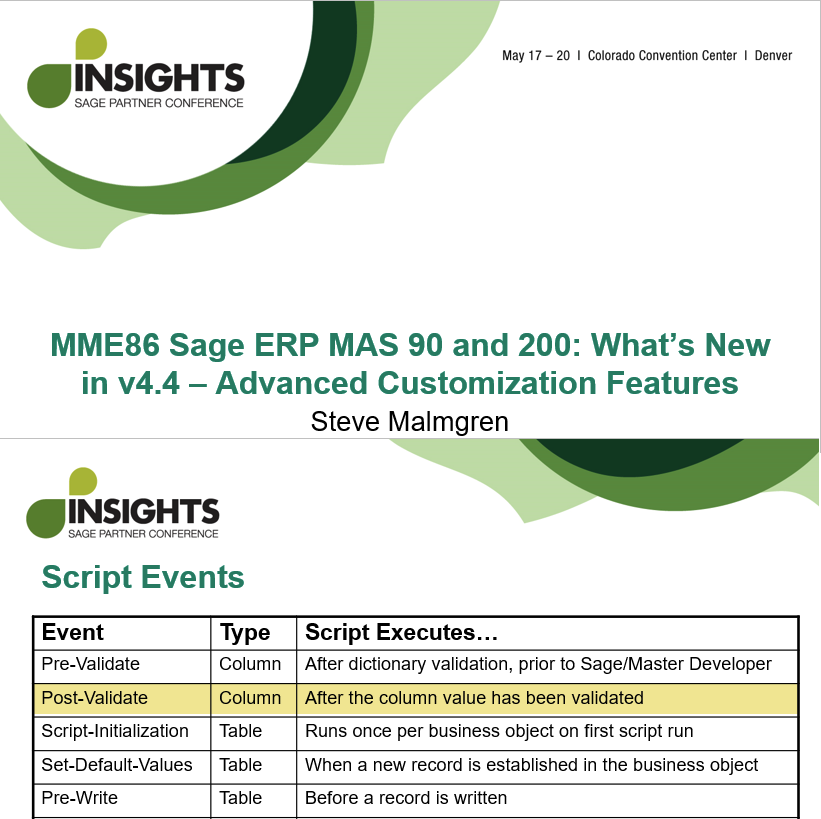Before I start to write this script, is there a way to only allow a script to fire off once? Background of the script I will create: Need to populate the "SO DETAILS PURCHASEORDERNO" if blank with a "C" for all customers except 3 or 4, and only on lines with vendorno = "0001226". However, I don't want the script to fire off every time an update is made to the SO, or if we delete the "C" in the POno field. Basically, do not want the "C" to reappear if we delete it or for a legitimate POno to get overwritten by the "C".
Sage 100
Welcome to the Sage 100 Support Group on Community Hub! Available 24/7, the Forums are a great place to ask and answer product questions, as well as share tips and tricks with Sage peers, partners, and pros.
Business Object Interface
Script to only fire off Once


